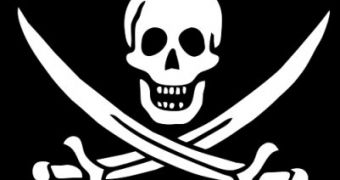We always hear developers complaining about game piracy and the fact that their illegal actions hurt the whole game and console manufacturing industry, but few people actually know that real-life piracy can also hurt the sales of consoles and titles.
It has just been reported that the big firms involved in naval shipping of different types of goods, from oil to electronics or games, are now considering changing their usual naval routes to much longer, and expensive ones because of the pirates who plunder ships using the Suez Channel. This man-made channel links the Indian Ocean to the Mediterranean Sea, and it is one of the most common shipping routes in the world.
But because of Somali pirates, who siege different types of ships and help themselves with the goods that are onboard, a lot of shipping companies are considering taking a much longer route, which will go around the Cape of Good Hope, located in South Africa. The real downside to all this is that the new route will add almost three weeks to the regular shipping schedule and will cost more money.
"Despite all the publicity over piracy, it will really hit home when consumers in the West find they haven't got their Nintendo gifts this Christmas," said Sam Dawson of the International Transport Workers' Federation. "If there isn't a let up and active intervention by navies in the region, the impact on trade will come within weeks or months because we've gone from one attack every couple of weeks to four in a single day."
Also, it seems like the pirates are getting more and more organized, as a lot of money is made from robbing different types of ships that use the Suez Channel. Although quite a lot of countries have sent their naval forces there, in an effort to discourage pirates, they continue to spread fear among the ship crews that venture out in the dangerous naval route.
Let's hope that such a measure as changing routes will not be taken, as it will surely have a big impact on a lot of things that are transported at sea.

 14 DAY TRIAL //
14 DAY TRIAL //